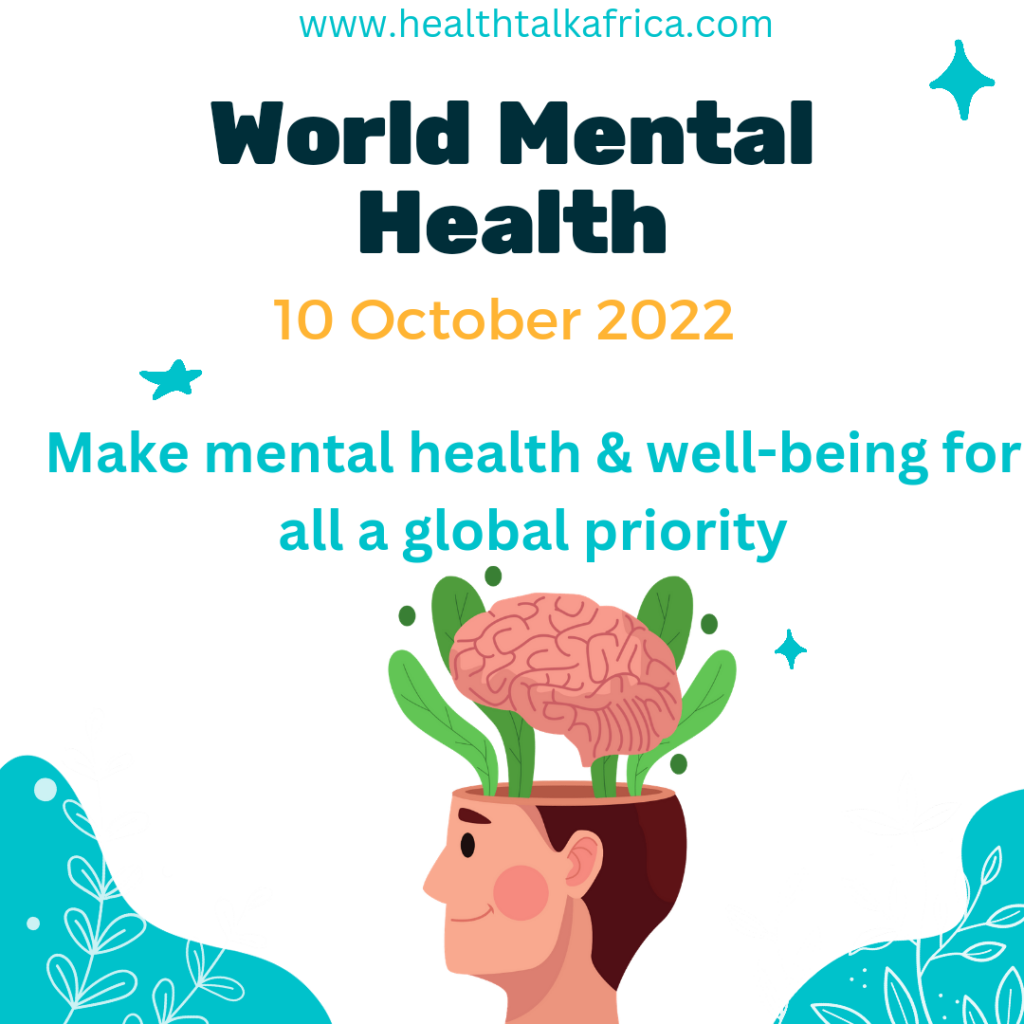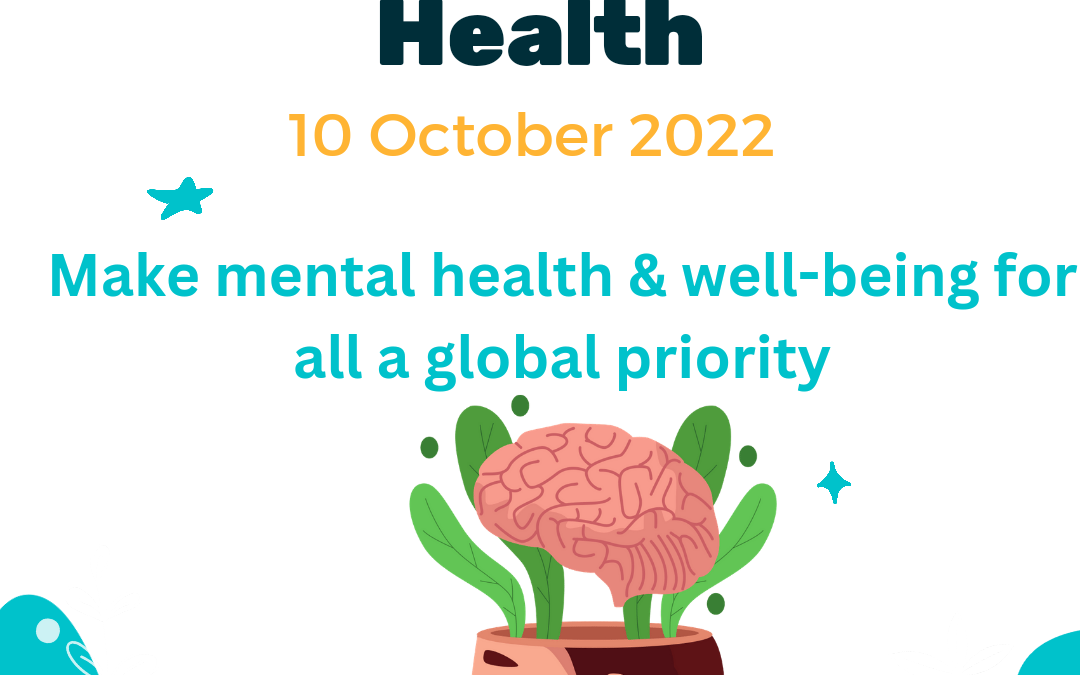According to the World Health Organisation (WHO) “Mental health is a state of mental well-being that enables people to cope with the stresses of life, realize their abilities, learn well and work well, and contribute to their community.”
Mental health is more than the absence of mental disorders as stated by WHO.
Mental health includes our emotional, psychological, and social well-being. It affects how we think, feel, and act.

Mental Health Indices
Mental health conditions are increasing worldwide. Mainly because of demographic changes, there has been a 13% rise in mental health conditions and substance use disorders in the last decade (to 2017). Mental health conditions now cause 1 in 5 years lived with disability. Around 20% of the world’s children and adolescents have a mental health condition, with suicide the second leading cause of death among 15-29-year-olds. Approximately one in five people in post-conflict settings have a mental health condition.
Two of the most common mental health conditions, depression and anxiety, cost the global economy US$ 1 trillion each year.
Despite these figures, the global median of government health expenditure that goes to mental health is less than 2%.
Determinants of mental health
Throughout our lives, multiple individual, social and structural determinants may combine to protect or undermine our mental health and shift our position on the mental health continuum.
Individual psychological and biological factors such as emotional skills, substance use and genetics can make people more vulnerable to mental health problems.
Exposure to unfavourable social, economic, geopolitical and environmental circumstances – including poverty, violence, inequality and environmental deprivation – also increases people’s risk of experiencing mental health conditions.
Mental health promotion and prevention
Promotion and prevention interventions work by identifying the individual, social and structural determinants of mental health, and then intervening to reduce risks, build resilience and establish supportive environments for mental health.
Suicide prevention is a global priority and included in the Sustainable Development Goals. Much progress can be achieved by limiting access to means, responsible media reporting, social and emotional learning for adolescents and early intervention.
Promoting child and adolescent mental health is another priority and can be achieved by policies and laws that promote and protect mental health, supporting caregivers to provide nurturing care, implementing school-based programmes and improving the quality of community and online environments.
Promoting and protecting mental health at work is a growing area of interest and can be supported through legislation and regulation, organizational strategies, manager training and interventions for workers.
Mental health care and treatment
It is vital to not only protect and promote the mental well-being of all, but also to address the needs of people with mental health conditions.
We must strengthen mental health care so that the full spectrum of mental health needs is met through a community-based network of accessible, affordable and quality services and supports.
Marking 2022 World Mental Health Day
Mental health conditions can have a substantial effect on all areas of life, such as school or work performance, relationships with family and friends and ability to participate in the community.
As we mark this year’s World Mental Health Day with the theme: Make mental health & well-being for all a global priority, kindly try out these tips to keep your mental balance.
1. Value yourself:
Treat yourself with kindness and respect, and avoid self-criticism and low self-esteem. Make time for your hobbies and extracurricular activities.
2. Take care of your body:
Taking care of yourself physically can improve your mental health. Be sure to:
- Eat nutritious meals
- Avoid smoking
- Drink lots of water
- Exercise, which helps decrease depression and anxiety and improve moods
- Get enough sleep
3. Surround yourself with positive people:
People with strong family or social connections are generally healthier than those who lack a support network. Make plans with supportive family members and friends, or seek out activities where you can meet new people, such as a club, class or support group.
4. Engage in volunteering:
Volunteer your time and energy to help someone else. You’ll feel good about doing something tangible to help someone in need.
5. Learn how to deal with stress:
Like it or not, stress is a part of life. Practice good coping skills. Do exercises, take a walk, etc. Also, remember to smile and see the humor in life. Research shows that laughter can boost your immune system, ease pain, relax your body and reduce stress.
6. Quiet your mind:
Try meditating, Mindfulness and/or prayer. Relaxation exercises and prayer can improve your state of mind and outlook on life.
7. Alter your routine:
Although our routines make us more efficient and enhance our feelings of security and safety, a little change of pace can perk up a tedious schedule. Alter your jogging route, plan a road-trip, take a walk in a different park, hang some new pictures or try a new restaurant.
8. Avoid alcohol and other drugs:
Keep alcohol use to a minimum and avoid other drugs.
9. Seek professional help when needed:
Seeking help is a sign of strength — not a weakness. And it is important to remember that treatment is effective. People who get appropriate care can recover from mental illness and addiction and lead full, rewarding lives.
References
World Health Organization (2022). Mental health: strengthening our response.
World Health Organization (2022). Mental Health
National Mental Health Association/National Council for Community Behavioral Healthcare


Great piece, thanks for sharing